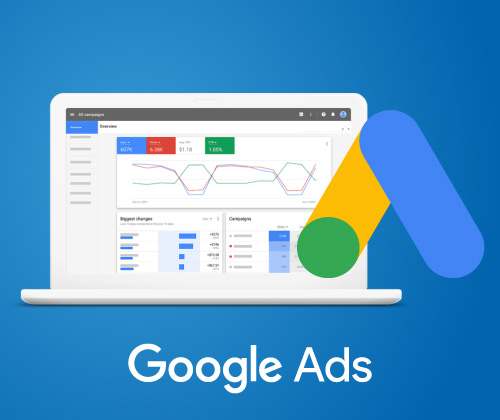In recent years, the manufacturing industry has undergone a significant transformation, driven by the integration of digital marketing strategies. As companies adapt to new technologies and shifting consumer behaviors, digital marketing has become a vital tool for manufacturers seeking to enhance their market presence, improve customer engagement, and drive sales. This article explores how digital marketing for manufacturing industry is revolutionizing traditional practices and provides case studies highlighting successful implementations.
Understanding the Need for Digital Marketing in Manufacturing
Historically, the manufacturing sector relied heavily on traditional marketing methods, such as trade shows, print advertising, and direct sales. However, with the rise of the internet and digital technologies, manufacturers face increasing pressure to evolve. Digital marketing offers several advantages, including:
- Wider Reach: Online platforms allow manufacturers to connect with a global audience, breaking geographical barriers.
- Targeted Marketing: Digital tools enable precise targeting of specific customer segments based on behavior, interests, and demographics.
- Cost-Effectiveness: Compared to traditional marketing, digital marketing often requires a lower investment, providing higher returns on investment (ROI).
- Measurable Results: Digital marketing strategies offer robust analytics that help manufacturers track performance and optimize campaigns.
As the manufacturing landscape changes, companies that embrace digital marketing strategies can remain competitive and foster growth.
Key Digital Marketing Strategies for the Manufacturing Industry
1. Content Marketing
Content marketing is an essential component of any successful digital marketing strategy. Manufacturers can establish themselves as industry leaders by creating valuable and informative content, such as blogs, whitepapers, and videos. This not only attracts potential customers but also builds trust and credibility.
Case Study: GE
General Electric (GE) has effectively utilized content marketing to showcase its innovations and solutions. Through its “GE Reports” platform, the company shares stories about its technology, products, and services. By providing valuable insights and engaging narratives, GE has successfully positioned itself as a thought leader in the manufacturing sector, attracting a dedicated audience.
2. Search Engine Optimization (SEO)
Search engine optimization is crucial for enhancing a manufacturer’s online visibility. By optimizing their websites for relevant keywords, manufacturers can ensure their products and services appear prominently in search engine results. This drives organic traffic and increases the likelihood of converting visitors into customers.
Case Study: McKinsey & Company
McKinsey’s research highlighted that manufacturing companies leveraging SEO saw a significant uptick in organic search traffic. By focusing on keywords like “digital marketing for manufacturing industry,” they could connect with businesses looking for digital solutions. This approach helped them reach a broader audience and attract new clients.
3. Social Media Marketing
Social media platforms are powerful tools for manufacturers to engage with customers and showcase their products. By sharing updates, industry news, and behind-the-scenes content, manufacturers can humanize their brands and foster a sense of community.
Case Study: Caterpillar Inc.
Caterpillar, a leading manufacturer of construction equipment, uses social media to connect with its audience. Through platforms like Facebook, Twitter, and Instagram, Caterpillar shares customer success stories, product launches, and industry insights. This approach has helped the company cultivate a loyal following and generate leads through social interactions.
4. Email Marketing
Email marketing remains a highly effective strategy for nurturing leads and maintaining customer relationships. Manufacturers can use targeted email campaigns to share product updates, industry news, and personalized content, driving engagement and conversions.
Case Study: Siemens
Siemens has successfully utilized email marketing to keep its customers informed and engaged. By segmenting its audience and sending tailored content, Siemens has increased customer retention and sales. Their approach highlights the importance of personalization in email marketing, which resonates well with recipients.
5. Pay-Per-Click (PPC) Advertising
PPC advertising allows manufacturers to reach potential customers quickly and effectively. By creating targeted ads that appear on search engines and social media platforms, manufacturers can drive traffic to their websites and generate leads.
Case Study: Honeywell
Honeywell utilized PPC advertising to promote its industrial automation products. By targeting specific keywords related to their offerings, they were able to capture the attention of businesses actively searching for automation solutions. This resulted in increased website traffic and higher conversion rates.
The Importance of Data Analytics
Digital marketing strategies in the manufacturing industry also rely heavily on data analytics. By analyzing customer behavior, preferences, and engagement, manufacturers can make informed decisions and optimize their marketing efforts. Tools such as Google Analytics and CRM systems provide valuable insights into campaign performance, enabling manufacturers to adjust their strategies in real-time.
Conclusion
Digital marketing is revolutionizing the manufacturing industry, enabling companies to enhance their market presence and connect with customers like never before. By embracing strategies such as content marketing, SEO, social media marketing, email marketing, and PPC advertising, manufacturers can effectively reach their target audience and drive growth. The success stories of companies like GE, Caterpillar, and Siemens demonstrate the power of digital marketing in transforming traditional manufacturing practices.
As the industry continues to evolve, it is essential for manufacturers to invest in digital marketing for manufacturing industry. By leveraging these strategies, they can not only survive but thrive in an increasingly competitive landscape. The future of manufacturing is digital, and those who embrace this shift will be well-positioned for success.










